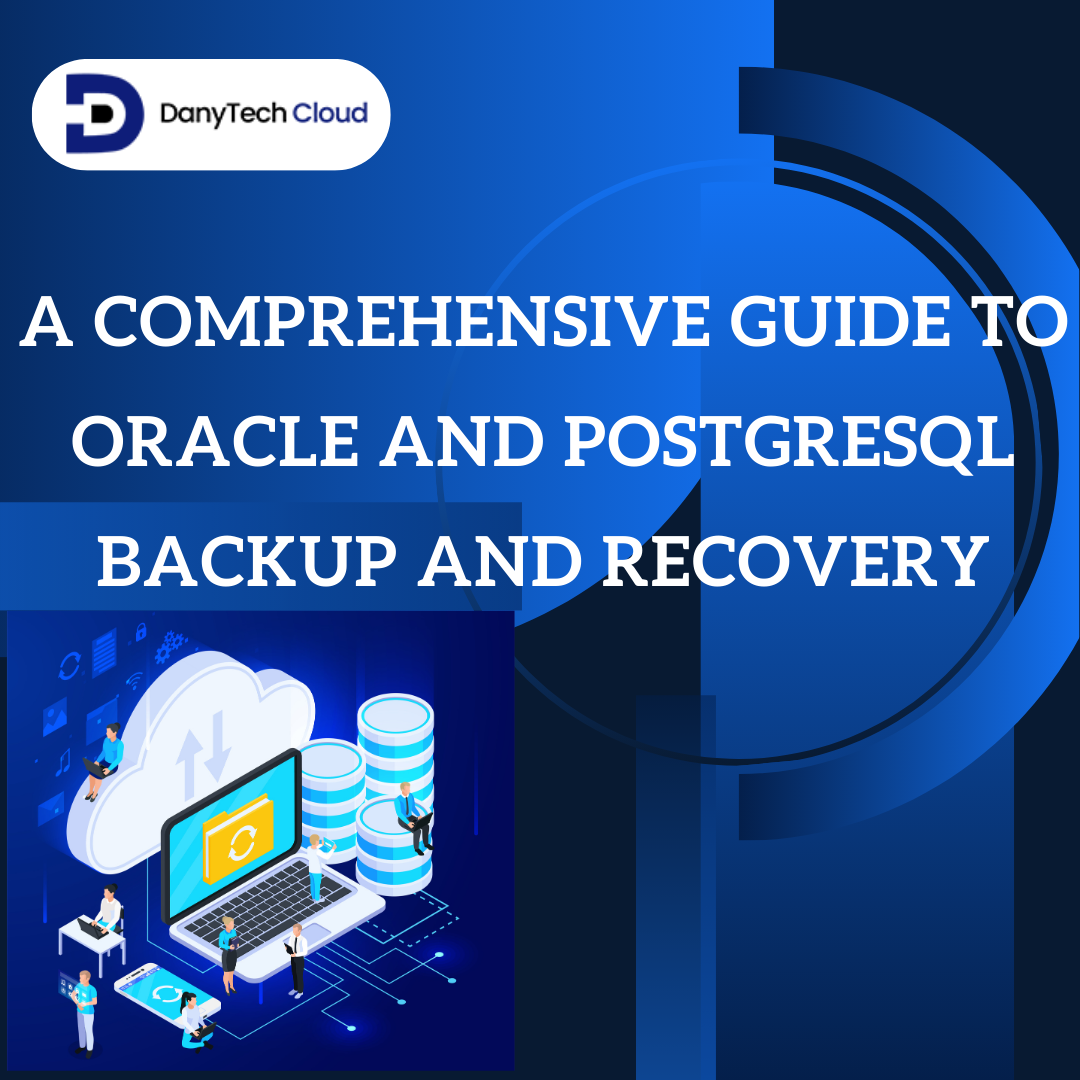In this day and age, businesses are driven by data. Thus, it makes sense why they rely heavily on different database management systems for the storage, processing, and analysis of the vast amounts of information they have. However, it is not enough to find just any database system; you need one that is capable of handling complex and large volumes of data. Luckily for you, Oracle and PostgreSQL stand out among the various options in the market and power critical operations for businesses across industries.
But that is not all that these systems do. Along with personally managing your data, they effectively backup and, consequently, recover your information when needed.
Why Is Backup And Recovery Of Data Important?
Think about all the data that your business handles, and then imagine if it disappeared into the void. Would that not have catastrophic consequences, which could possibly hurt your organization? The loss of data can often cause a disruption in finances, reputational damage, and regulatory non-compliance. Thus, it becomes necessary for you to have an effective and comprehensive strategy in place for backup and recovery.
Moreover, an appropriate and robust data management strategy helps mitigate the risks of the following.
- Errors In Software
Human errors, glitches, and bugs in software applications could lead to the deletion of important data or corrupt sensitive information.
- Failure Of Hardware
Failures of hardware or any malfunctions in their components can lead to a loss of data, especially if you do not have proper backups in place.
- Threats Related To Cybersecurity
The advancements in technology have led to an escalation of cyberattacks. These include malware and ransomware, which prompt organizations to fortify their defenses. Part of your defense strategy should be to make sure that your data can be recovered swiftly should you be targeted.
Backup And Recovery Strategies For Oracle
It is no secret that Oracle offers a wide range of backup and recovery options, which have been tailored to meet the diverse needs of organizations operating in different industries. Below are some common versatile strategies that you can implement, irrespective of what kind of business you run.
Oracle allows you to capture a full copy of your entire database. Consequently, the complete backups serve as the foundation for various recovery operations. You can rest assured that all your information, which includes configurations, schema structures, as well as system files, is kept safe. This is because Oracle ensures that its database backups leave no data behind.
In line with this, you will be able to recover all your operations in case the data is lost for any reason, such as system failure or corruption. But the best thing about Oracle’s database backup is that it expedites the process of recovery and allows you to get all your operations up and running in no time at all in the event of a disaster.
- Oracle Recovery Manager (RMAN)
A powerful tool, RMAN, aids in the two key processes you can implement to ensure the safety of your data. These include both backups and recoveries, courtesy of Oracle. The good news is that you can reap the rewards of various features, such as block-level recovery, incremental backups, as well as integration with Oracle Cloud for backups off the site.
- Incremental Backups
Incremental backups are another crucial strategy that can efficiently protect your data. In addition, they are known for minimizing the usage of resources and allowing small window durations at the time of backups. On this note, they capture only the changes that you made to the database since the previous backup. Consequently, you will not have to deal with duplicates of entire datasets.
This reduces the amount of data to be backed up and ensures that incremental backups are more efficient when it comes to backup time and storage space.
Top Techniques For PostgreSQL Backup And Recovery
PostgreSQL is an open-source relational database management system that is known for offering robust backup as well as recovery capabilities. Here are some of the instrumental techniques you can use to keep your data under lock and key.
- Physical Backups
Physical backups aid in safeguarding the availability and integrity of database data. They directly copy the files present on your disk, which include transaction logs, system-level components, and configuration files. Through this method, PostgreSQL ensures that your information has a consistent and complete database of its own at a specific point in time.
Furthermore, you have various tools at hand to create physical backups, with two main options being file system-level backups and pg_basebackup. The former involves using tar or rsync to copy database files from the filesystem. Meanwhile, pg_basebackup is a utility that enables you to create base backups by streaming your data all over the network until it reaches its destination.
- Logical Backups
The best thing about logical backups is that they help capture SQL statements, which are needed to recreate the scheme and data of your database. The pg_dumpall and pg_dump utilities of PostgreSQL are mainly used throughout this process. They are appreciated for offering businesses the flexibility to restore specific data subsets or database objects.
Best Practices To Keep In
Mind For Backup And Recovery
Below are some best practices you can adhere to in order to maximize the effectiveness of recovery and backup operations in Oracle and PostgreSQL databases.
- Schedule regular backups and make sure to test their integrity through restoration and validation exercises.
- Ensure that you have backups both off-site and on-premises to protect yourself against data loss in case of cyberattacks and disasters.
- Document backup and recovery procedures in a comprehensive manner and ensure relevant stakeholders are trained to execute them.
Backup And Recovery Done Right
There is no doubt that backup and recovery are important components of data management. Therefore, ensuring the availability and resilience of Oracle and PostgreSQL databases in the face of adversity becomes necessary. Keep in mind that proactive planning and preparation can help you preserve the integrity of your data in today’s evolving and dynamic business landscape.




